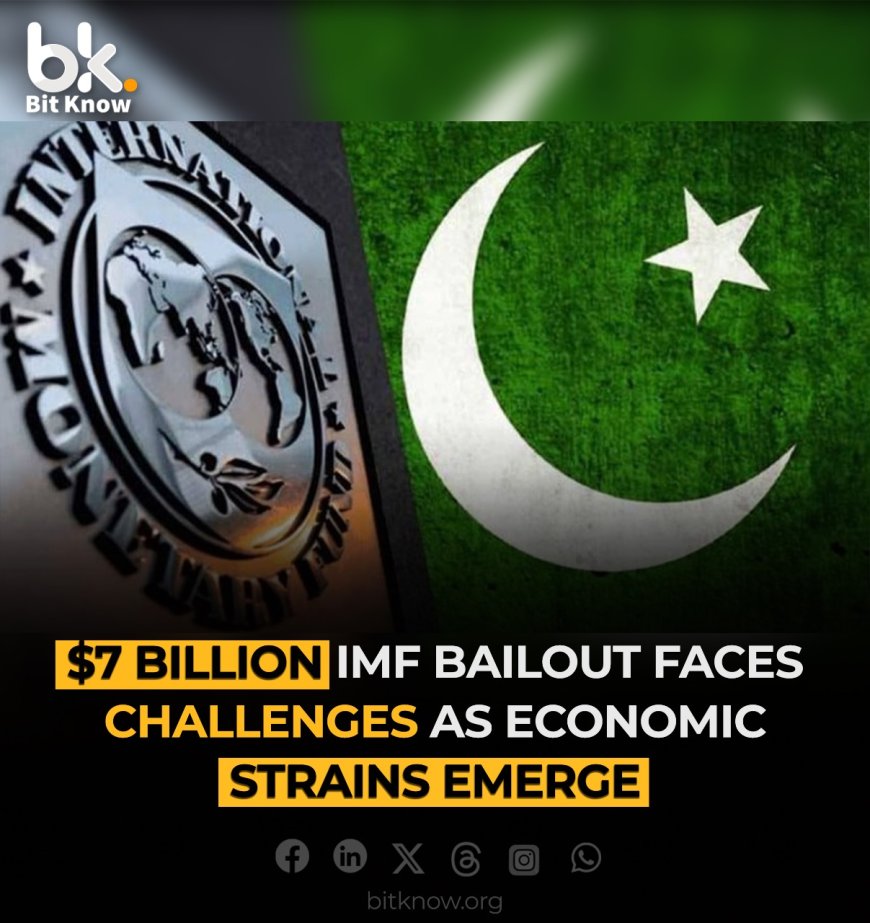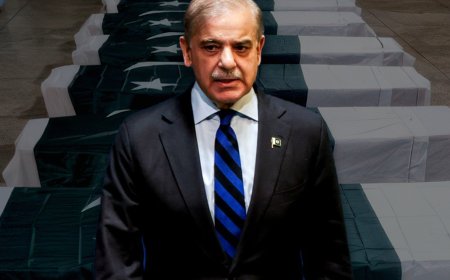$7 Billion IMF Bailout Faces Challenges as Economic Strains Emerge
Pakistan's $7 billion IMF bailout is facing challenges just a month in, with key economic assumptions proving inaccurate. Revenue shortfalls and low inflation threaten to destabilize the agreement, pushing the government towards tough decisions.

ISLAMABAD: The $7 billion bailout agreement between Pakistan and the International Monetary Fund (IMF) is already facing significant roadblocks just one month after its approval. Key economic assumptions underpinning the deal like growth rate, inflation, manufacturing, and imports are quickly proving inaccurate, pushing the government into a difficult choice between renegotiating the terms or imposing additional taxes on an already struggling economy.
Data from the first quarter reveals that the Federal Board of Revenue (FBR) and provincial governments are struggling to meet ambitious revenue targets. Tax collections have fallen short, and provincial cash surpluses aren’t materializing as planned. Additionally, Deputy Prime Minister Ishaq Dar has questioned the IMF’s push for a market-determined exchange rate, suggesting that the rupee is already undervalued.
The FBR has sustained a tax shortfall of Rs90 billion in the first quarter alone, with projections indicating that this gap may widen to between Rs350 billion and Rs400 billion by December. The low inflation rate of 9.2%, versus the IMF’s expected 12.9%, has also reduced revenue from price-driven taxes. Meanwhile, import growth a crucial factor in hitting the Rs13 trillion tax target has only reached 8%, far below the 17% expected.
As the second quarter unfolds, these economic strains are anticipated to deepen, with shortfalls expected in GST, customs, and excise tax collections. The FBR forecasts an additional Rs254 billion gap for the current quarter alone, largely due to lower import taxes and domestic sales.
The IMF deal’s unrealistic targets now threaten to place additional pressure on an already overburdened economy, and some government officials are advocating for a renegotiation to reflect the current economic reality. Others suggest that anticipated interest rate cuts due to low inflation could be used to offset the FBR’s shortfalls.
However, even with additional measures, the IMF’s Rs12.92 trillion tax target appears challenging. As the government grapples with declining tax revenues and the provinces struggle to meet fiscal commitments, officials face the possibility of missing multiple targets, casting further doubt on the deal’s sustainability.
What's Your Reaction?









































































































